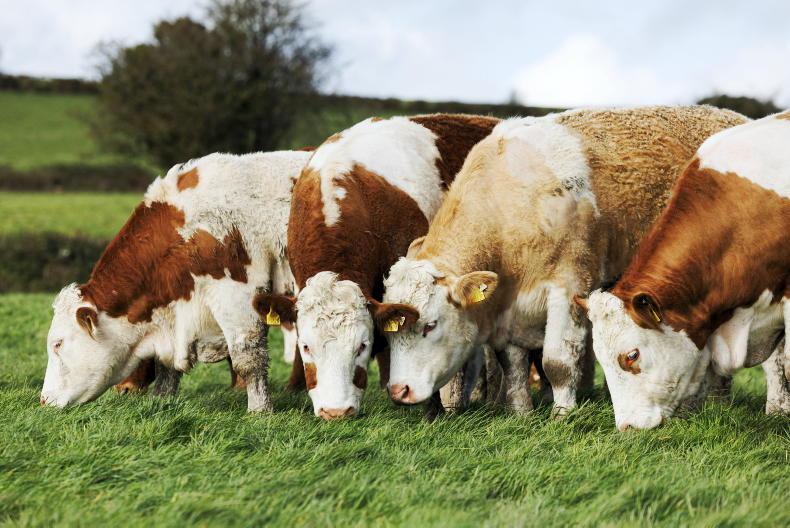The most recent EU report that there cannot be a guarantee that Brazilian beef imports to the EU are free from some growth promoters is a very significant result at a time when a trade deal such as Mercosur is hanging in the balance.
The report from the European Commission shows Brazil cannot prove its beef supplied to the EU market is not treated with Oestradiol 17.
Interestingly, this report isn’t from a study conducted five years ago – it’s a study completed only in June 2024. The fact that farms in Brazil are still not legally required to keep on-farm treatment records and controls on the use of veterinary medicine products shows the continuing gap in standards, highlighted extensively almost ten years ago, remains.
This is part of the ongoing frustration among Irish farmers overwhelmed with paperwork and audits. IFA president Francie Gorman was fast out of the blocks to call for an immediate stop to imports of beef from Brazil and to cease negotiations with the Mercosur countries on a trade deal involving meat.
Imports of Brazilian beef to the EU increased by 27% in 2023 when compared with the same period in 2022. At the time, the Chinese ban on Brazilian beef imports at the beginning of 2023 meant Brazil targeted the European market to fill the gap that China left during the ban.
EU diets are 79% plant-based
The Chief of the UN Food and Agriculture Organisation (FAO) for the sustainable livestock division, Badi Besbes was over in Dublin from Rome this week. He showed a very interesting slide that sometimes gets lost in translation.
It was the result of an FAO 2023 report which highlights that in western Europe, just 21% of our diet comes from animal-sourced foods.
The balance (79%) comes from plant based products. The proportion falls to just 6% animal-sourced for countries in the African continent.
The FAO boss also showed the projected increase for animal-sourced food is set to rise 20% by 2050, with most of that coming from an increased demand for meat protein (+22%).
One other alarming statistic he showed suggested around 700,000 human deaths per year related to antimicrobial resistance.
Mild autumn is good news for farmers
It would be a shame not to call out the positive impact the good spell of autumn weather is having on everyone. Newly sown crops are emerging in the best of health. Milking cows are still out grazing on many farms.
Light cattle remain out and are grazing the best of grass and leaving no marks on the ground.
I realise I’m generalising, but it’s fair to say a good section of the country and farmers are in a much better mood given the weather and how it allows farmers get the work done, reduce the yard work and importantly, save on costs when margins are very tight. The savings are real.
The most recent EU report that there cannot be a guarantee that Brazilian beef imports to the EU are free from some growth promoters is a very significant result at a time when a trade deal such as Mercosur is hanging in the balance.
The report from the European Commission shows Brazil cannot prove its beef supplied to the EU market is not treated with Oestradiol 17.
Interestingly, this report isn’t from a study conducted five years ago – it’s a study completed only in June 2024. The fact that farms in Brazil are still not legally required to keep on-farm treatment records and controls on the use of veterinary medicine products shows the continuing gap in standards, highlighted extensively almost ten years ago, remains.
This is part of the ongoing frustration among Irish farmers overwhelmed with paperwork and audits. IFA president Francie Gorman was fast out of the blocks to call for an immediate stop to imports of beef from Brazil and to cease negotiations with the Mercosur countries on a trade deal involving meat.
Imports of Brazilian beef to the EU increased by 27% in 2023 when compared with the same period in 2022. At the time, the Chinese ban on Brazilian beef imports at the beginning of 2023 meant Brazil targeted the European market to fill the gap that China left during the ban.
EU diets are 79% plant-based
The Chief of the UN Food and Agriculture Organisation (FAO) for the sustainable livestock division, Badi Besbes was over in Dublin from Rome this week. He showed a very interesting slide that sometimes gets lost in translation.
It was the result of an FAO 2023 report which highlights that in western Europe, just 21% of our diet comes from animal-sourced foods.
The balance (79%) comes from plant based products. The proportion falls to just 6% animal-sourced for countries in the African continent.
The FAO boss also showed the projected increase for animal-sourced food is set to rise 20% by 2050, with most of that coming from an increased demand for meat protein (+22%).
One other alarming statistic he showed suggested around 700,000 human deaths per year related to antimicrobial resistance.
Mild autumn is good news for farmers
It would be a shame not to call out the positive impact the good spell of autumn weather is having on everyone. Newly sown crops are emerging in the best of health. Milking cows are still out grazing on many farms.
Light cattle remain out and are grazing the best of grass and leaving no marks on the ground.
I realise I’m generalising, but it’s fair to say a good section of the country and farmers are in a much better mood given the weather and how it allows farmers get the work done, reduce the yard work and importantly, save on costs when margins are very tight. The savings are real.










SHARING OPTIONS